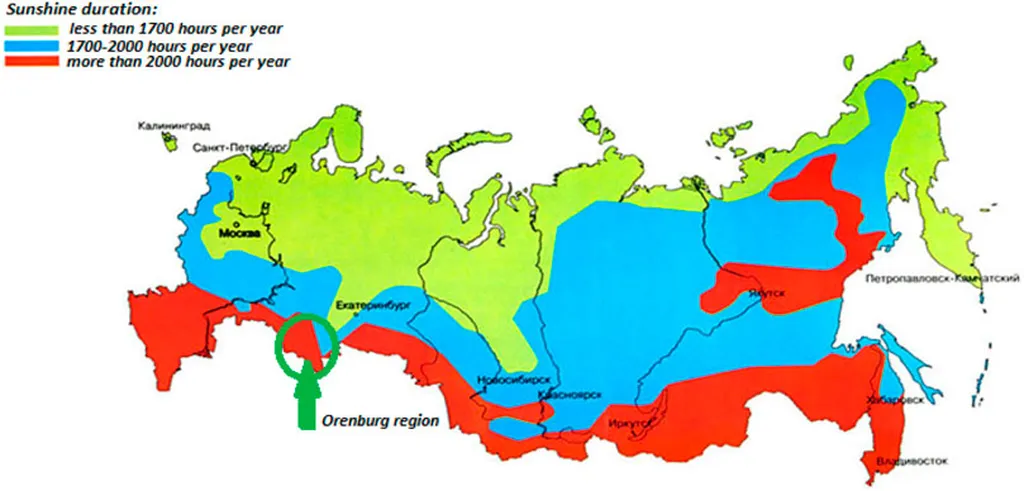In the heart of Russia’s energy transition, a significant study led by P.E. Mezentsev from the Institute of Thermophysics of the Ural Branch of the Russian Academy of Sciences is shedding light on the strategic role of solar power plants in the country’s regional energy landscape. Published in the journal “Vectors of Well-being: Economy and Society,” Mezentsev’s research delves into the economic viability and effectiveness of solar power plants across various Russian regions, considering both centralized and decentralized electricity supply systems.
The study underscores the importance of solar energy in Russia’s socio-economic development, particularly in the context of the global energy transition towards low-carbon electricity generation. Mezentsev and his team employed simulation modeling to evaluate the feasibility and efficiency of solar power plants in regions with differing degrees of centralization in electricity supply. “Our models provide a crucial tool for assessing the potential of solar energy in diverse regional contexts,” Mezentsev explains, highlighting the innovative approach of using simulation modeling to navigate the uncertainties inherent in initial data.
The research focuses on two key case studies: the Artinskaya solar power plant in the Sverdlovsk Region, representing a centralized power supply zone, and a complex of solar power plants in the Kamchatka Territory, illustrating a decentralized system. By analyzing these examples, Mezentsev’s team demonstrates how high-tech solar power plants can contribute to fuel savings and significant reductions in CO2 emissions.
The commercial implications of this research are substantial. For the energy sector, understanding the economic efficiency of solar power plants in different regional contexts can guide investment decisions and infrastructure development. “The models we’ve developed can help stakeholders make informed choices about where and how to implement solar energy solutions,” Mezentsev notes, emphasizing the practical applications of their findings.
Moreover, the study’s insights into the regulatory framework and socio-economic aspects of solar energy development provide a comprehensive view of the challenges and opportunities in Russia’s energy transition. By highlighting the importance of fuel economy and emissions reduction, the research aligns with global trends towards sustainable and low-carbon energy solutions.
As the energy sector continues to evolve, Mezentsev’s work offers a roadmap for integrating solar power plants into regional energy systems, optimizing their performance, and maximizing their benefits. The study’s innovative use of simulation modeling and regression analysis sets a new standard for evaluating the effectiveness of renewable energy projects, paving the way for more informed and strategic decision-making in the energy industry.
In an era where the energy transition is gaining momentum, Mezentsev’s research provides valuable insights that could shape the future of solar energy in Russia and beyond. By bridging the gap between regional energy needs and technological advancements, this study not only enhances our understanding of solar power plants but also underscores their pivotal role in achieving a sustainable energy future.

